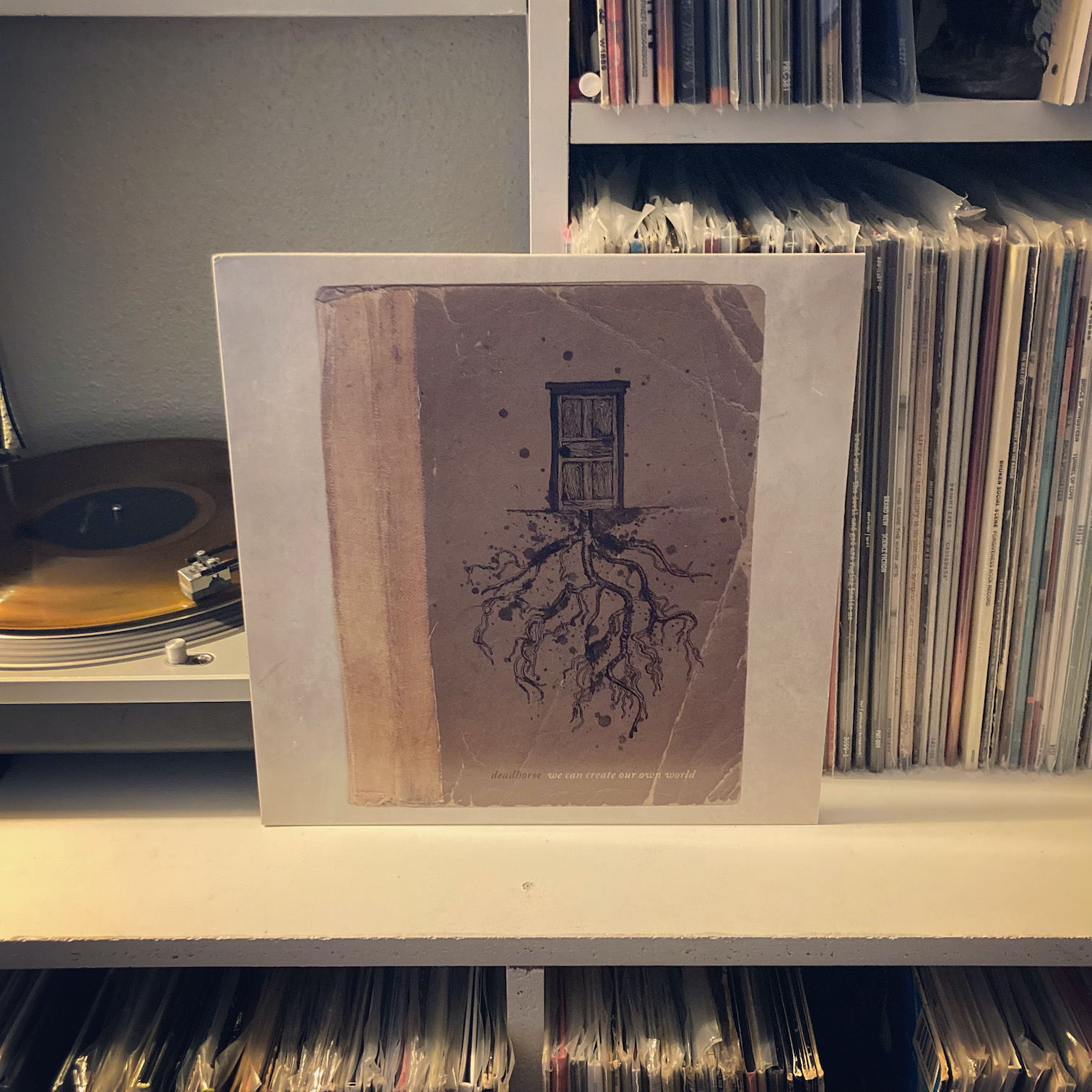 In the liner notes for We Can Create Our Own World, Deadhorse offers an inspiring, yet grave missive: we can create a new world, we can create new selves—but. We can only do that reconstruction after we have torn down the existing structures.
In the liner notes for We Can Create Our Own World, Deadhorse offers an inspiring, yet grave missive: we can create a new world, we can create new selves—but. We can only do that reconstruction after we have torn down the existing structures.
The album offers itself up as a sonic representation of that idea, and it is not found wanting.
I first became aware of Deadhorse around eight or nine years ago. My friends in analecta invited me to open a show they were playing in town with a few other post rock bands, including Deadhorse, on tour from Pennsylvania. After the show, I tried to find them online, but Google insisted I must be trying to find information about a thrash metal band called Dead Horse, and so I forgot about it.
A few years ago, I would rediscover them after re-meeting guitarist/designer Brian Morgante (and his partner, pianist/organist Rachel Shesman) when he was playing bass for Boy Rex on a tour run. We became fast friends, and I shortly realized that they were in the band I enjoyed so much all those years ago. Having come to know Brian better now, and how much of his own personal ethic is focused on the idea of deconstructing harmful systems in himself and the world and reconstructing better worlds in their place, I’m not sure I need the liner notes to interpret the wordless narrative of the music.
Post rock is, of course, maybe the best template for this sort of statement. By and large, the genre traffics in sonic construction and destruction. Melodies and rhythms are stacked on top of one another like skyscrapers and tenements, soaring ever higher until they crash under their own weight or catch fire from the heat of their own electricity. Post rock is filled with moments that are devastating and triumphant, as long as any other point along the axis between those two extremities.
We Can Create Our Own World leans hard into post rock’s sonic ethos to deliver a philosophical statement, and it rings loud and clear. It runs through seven songs in fifty minutes, offering both darkness and light, hope and despair, turmoil and peace. The songs themselves often make these journeys within their own extended runtimes, but these short trips are microcosms of the album’s complete sojourn, moving from delicate to crushing to sparse to anthemic as the album plays on. Keys and strings augment many of the tracks, mixing the neo-classical sensibilities of MONO with the sonic storytelling of Explosions in the Sky.
The results are, in a word, stunning. We Can Create Our Own World packs an emotional punch that all post rock bands chase but few achieve. In a scene that’s filled with bands writing aimless sonic storylines, it’s refreshing to hear an album with a narrative that’s so clear it doesn’t need words to tell its story plainly.